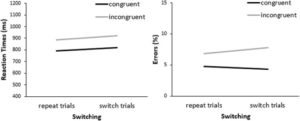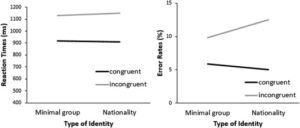
Credits: Ketut Subiyanto
In this project, we aim to understand how people switch between different aspects of the self that are related to important groups (“social identity switches”), whether these switches incur cognitive costs, and whether they can be initiated or avoided successfully.
While self-categorisation theory suggests that we perform frequent social identity switches in our everyday lives (Turner et al., 1987), little is known about how effective this process is. For instance, an employee might switch from an organisational identity to a parent identity in response to a phone call from their child, or a customer might switch to an activist identity in response to a contentious ad.
Our research addresses this gap in knowledge by:
(1) assessing whether social identity switches are effortless or incur “switch costs” similar to the costs reported for task switches
(2) examining how much control we have over such switches
Are identity switches effortless?
Based on paradigms used in task-switching research (e.g., Rogers & Monsell, 1995; Meiran, 1996), the first two laboratory studies prompted and assessed several social identity switches in a within-subject design.
Studies using IATs support effective and relatively quick switches between identities by showing no reliable effect of switching on the congruency effect:
(1) When comparing switch and repeat trials

(2) When comparing switches away from novel or established identities:

Zinn, A., Lavric, A., Levine, M. & Koschate, M. (in press). Social identity switching: How effective is it? Journal of Experimental Social Psychology, Registered Report. https://doi.org/10.1016/j.jesp.2022.104309
Can we control identity switches?
Self-categorisation theory, specifically meta-contrast theory, suggests that the social context determines which identity is salient at any given moment. Here, we examine whether salience is indeed entirely dependent on exogenous factors, or whether endogenous processes also play a role in inhibiting but also creating identity switches.
Pre-registration: https://osf.io/asjv8
 These questions are considered by Anna Zinn as part of her PhD project, supervised by Miriam Koschate-Reis, Aureliu Lavric and Mark Levine.
These questions are considered by Anna Zinn as part of her PhD project, supervised by Miriam Koschate-Reis, Aureliu Lavric and Mark Levine.